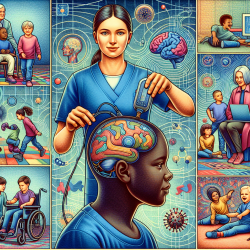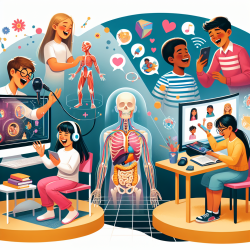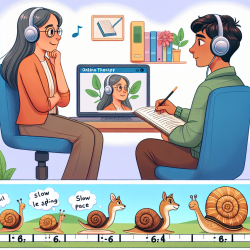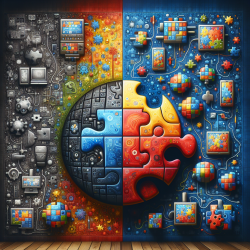Tardive Dyskinesia (TD) is a severe and often debilitating movement disorder characterized by involuntary, repetitive movements, primarily affecting the orofacial region but can also involve the limbs, trunk, and head. It predominantly occurs as a side effect of long-term use of dopamine receptor-blocking agents (DRBAs), affecting approximately 20% of individuals treated with neuroleptics. Emerging research highlights the potential benefits of neuromodulation techniques in managing severe and refractory cases of TD. As practitioners focused on data-driven decisions, it is crucial to integrate these findings into clinical practice to enhance outcomes for children affected by TD.
Understanding Neuromodulation Techniques
Neuromodulation involves altering nerve activity through targeted delivery of stimuli, such as electrical or magnetic pulses. The most common neuromodulation techniques include Deep Brain Stimulation (DBS), repetitive Transcranial Magnetic Stimulation (rTMS), and transcranial Direct Current Stimulation (tDCS). While DBS is invasive and requires surgical electrode placement, rTMS and tDCS are non-invasive, offering a less intrusive approach to modulating brain activity.
Deep Brain Stimulation (DBS)
DBS is considered a viable option for severe and refractory TD cases. The hypothesis suggests that irregular neuronal discharges in the Globus Pallidus Internum (GPi) lead to disordered cortical coding. DBS disrupts these noisy signals, allowing for smoother motor program gating. The subthalamic nucleus (STN) is another common target, showing favorable outcomes in TD management.
Repetitive Transcranial Magnetic Stimulation (rTMS) and Transcranial Direct Current Stimulation (tDCS)
rTMS and tDCS promote adaptive neuroplasticity, potentially reducing pathological sequelae from DRBA use. Preliminary evidence indicates that rTMS targeting the motor cortex and tDCS applied to the cerebellum and primary motor cortex can facilitate clinical recovery in TD patients. These non-invasive techniques are gaining traction as effective interventions for managing TD.
Implementing Neuromodulation in Clinical Practice
Integrating neuromodulation techniques into clinical practice requires a comprehensive understanding of the procedures, patient selection criteria, and potential outcomes. Here are steps to effectively implement these techniques:
- Educate and Train: Ensure that practitioners are well-versed in the latest research and techniques related to neuromodulation. Continuous professional development and training programs are essential.
- Patient Assessment: Conduct thorough assessments to identify suitable candidates for neuromodulation. This includes evaluating the severity of TD, previous treatment responses, and overall health status.
- Collaborate with Specialists: Work closely with neurologists, neurosurgeons, and other specialists to develop tailored treatment plans. Multidisciplinary collaboration enhances treatment efficacy and patient outcomes.
- Monitor and Evaluate: Implement robust monitoring protocols to assess the effectiveness and safety of neuromodulation interventions. Regular follow-ups and adjustments to treatment plans are crucial for optimal results.
- Engage Families: Educate and involve families in the treatment process. Providing comprehensive information about neuromodulation techniques and setting realistic expectations can improve adherence and satisfaction.
Encouraging Further Research
While current evidence supports the use of neuromodulation in managing TD, ongoing research is essential to refine these techniques and explore new avenues for intervention. Practitioners should be encouraged to participate in and contribute to research efforts. Here are ways to foster a research-oriented practice:
- Stay Informed: Keep abreast of the latest research findings and advancements in neuromodulation. Subscribing to relevant journals and attending conferences can provide valuable insights.
- Collaborative Research: Engage in collaborative research projects with academic institutions and research organizations. Collaborative efforts can lead to significant advancements and improved clinical practices.
- Data Collection: Systematically collect and analyze data from clinical practice to contribute to the growing body of evidence. This can involve tracking patient outcomes, side effects, and overall treatment efficacy.
- Advocate for Funding: Advocate for funding and resources to support research in neuromodulation techniques. Highlighting the potential benefits and positive outcomes can attract support from various stakeholders.
Conclusion
Implementing neuromodulation techniques for managing Tardive Dyskinesia in children holds significant promise. By integrating these evidence-based interventions into clinical practice and encouraging ongoing research, practitioners can enhance treatment outcomes and improve the quality of life for affected children. The journey towards effective TD management is ongoing, and staying committed to data-driven decisions and continuous learning is key to success.
To read the original research paper, please follow this link: SYMPOSIUM.










